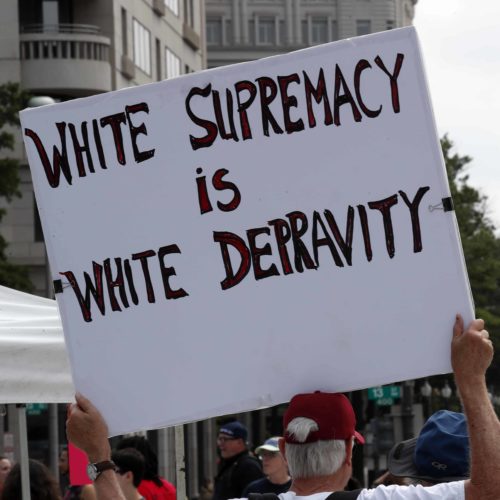Introduction
We’re continuing our series featuring journalists who have written powerful stories.
The phrase “go back to your country” is one that is familiar to many immigrants in the U.S. Christopher Mathias reported the impact of these “go back” incidents in the Trump era for HuffPost. The phrase is meant to threaten the victim into believing they don’t belong in the U.S. The difference now is that people are not only hearing it from street corners but also from the presidential podium. Building off of ProPublica’s Documenting Hate project, which tracked hate crimes and incidents across the nation, HuffPost also built a separate tracker for these “go back” incidents as a way to analyze what hate looked like in the Trump era.
How did you get the story? What led you to pursue it?
We decided to build a separate database of those “go back” incidents as a way of analyzing what hate looked like in the Trump era. Among the incidents we found was a shooting near Baltimore last year. None of the news clips about the incident mentioned the victims’ names so I ended up driving down to Baltimore County from New York to look up the court documents. We found Elvis Smith and Robert Peete and contacted them.
They recounted the day a white supremacist (who may have marched in Charlottesville) attacked them and told them to “go back to Africa.” The white supremacist, named Brandon Troy Higgs, shot Smith in the leg. He’s now facing attempted murder and hate crime charges. The trial starts in January and I plan on being there.
What were the challenges of reporting and how did you navigate them?
So this was the first time I’ve worked on an honest-to-god data project. It was a real challenge to collect and analyze the data in a comprehensive way. Fortunately, our newsroom was graced with the presence of a summer intern named Sophie Will, a Boston University student who’s a real data wiz. She helped build the database and made sure we standardized everything correctly. We were able to say definitively that about 20 percent of the incidents we collected involved the perpetrator also invoking the name of Trump, or his campaign slogans, while attacking or harassing their victim.
The other challenge was getting across to readers just what a moral emergency this moment is. Fortunately, some great scholars and academics were able to express that for me. Jeannine Bell, a law professor at Indiana University, said she had never seen so many incidents that involved the invocation of the president’s name. Jason Stanley, a Yale philosophy professor who studies fascism, talked to me about the relationship in fascist regimes between hateful rhetoric from political leaders and the kind of street-level hate violence of the “unofficial militia.” That’s what we’re seeing right now, he said.
The takeaway: Moral emergencies are still worth investigating because in that sense, everyone is accountable.


Join the conversation
Show Comments